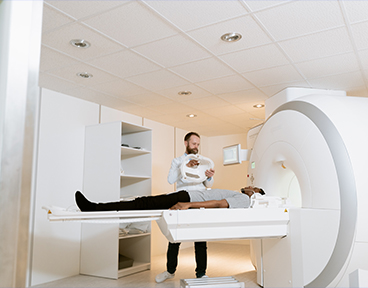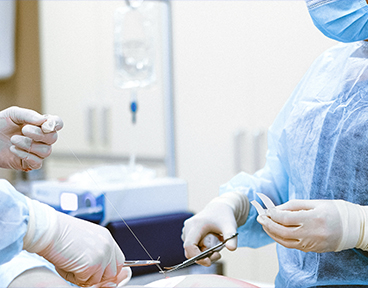What we do
Comprehensive HPB cancer and complex benign care along with General surgery expertise for all acute and chronic surgical conditions affecting gastrointestinal tract / abdomen
The Marylebone HPB Centre offers rapid access to the full breadth of specialist investigations, interventions and expertise for the management of complex HPB disease.
The multidisciplinary team supporting surgeons comprises:
- Radiological support – doppler ultrasound, CT, MRI, FDG-PET
- Interventional radiology percutaneous transhepatic cholangiography / stents
- advanced endoscopy Endoscopic ultrasound (EUS), spylglass, Endoscopic retrograde cholangio pancreatography (ERCP)
- histopathology
- access to expert oncology
- cancer / clinical nurse specialist available to attend to patients needs during admission and after discharge
- secretarial support to process administration

Our Services
Malignant Conditions
Malignant conditions refer to cancerous growths or tumours that have the potential to spread to other parts of the body.
Pancreatic Cancer
Pancreatic cancer is the fifth most common form of cancer in the UK yet has a high mortality rate as it can be difficult to detect in early stages. The most common form of pancreatic cancer is adenocarcinoma, which occurs in exocrine cells where digestive enzymes are produced. Less common are neuroendocrine tumours, which develop in the neuroendocrine cells that produce hormones. There are different surgical techniques used to treat pancreatic cancers, the most common being a Whipple procedure (or a pancreaticoduodenectomy).
Biliary Tract Cancer
The bile duct connects the liver and gallbladder to the small intestine. Biliary tract cancer is a form of cholangiocarcinoma, which occurs in the cells lining the bile duct and is relatively rare. As with pancreas cancer, there are various surgical options available to patients but the most common surgical treatment for cholangiocarcinoma is a resection, which involves the removal of the tumour and a surrounding portion of the liver and bile duct.


Liver Cancer
There are several types of liver cancer, but the most common type is hepatocellular carcinoma. This develops in the liver cells, known as hepatocytes. Other types of liver cancer include cholangiocarcinoma, as the bile duct connects to the liver, and angiosarcoma, which begins in the blood vessels of the liver and is extremely rare. Here, resections are also the most common surgical option but in some cases, a liver transplant may be considered for patients with advanced liver cancer or liver damage (cirrhosis).
Gallbladder Cancer
Gallbladder cancer is rare but as with many other HPB cancers is asymptomatic and therefore difficult to detect at an early stage. The most common surgical option is a cholecystectomy, which involves removing the gallbladder and a portion of the surrounding liver tissue. In some cases, additional tissue around the gallbladder may need to be removed, and if the cancer has spread (metastasised) parts of the liver, bile duct and lymph nodes may also need to be removed.
Our Services
Benign Conditions
Benign conditions do not risk spreading to other parts of the body but can be dangerous if left untreated. Some of the conditions the team treat include:
Pancreatitis
Pancreatitis refers to inflammation of the pancreas. Chronic pancreatitis is a long-term condition that can lead to permanent damage to the pancreas while acute pancreatitis is characterised by a sudden and often severe inflammation of the pancreas. Surgery can be used to treat the underlying causes of pancreatitis, such as gallstones and it may also be used to treat complications associated with acute pancreatitis. This includes surgery to remove infected necrotic (dead) tissue or surgery, known as a necrosectomy, and in some cases a Whipple or cholecystectomy may be necessary to avoid sepsis and organ failure.
Gallstone disease
Gallstones are hard deposits that form in the gallbladder or bile duct. Sometimes gallstones, particularly small ones, do not cause symptoms or require treatment, but larger stones risk causing a blockage, which can cause painful symptoms and lead to the gallbladder, bile duct or pancreas becoming inflamed or infected. A cholecystectomy can be carried out to remove the gallbladder or the affected duct, as well as any large stones.
Hernias
Hernias occur when an organ or tissue pushes through a weak spot in the surrounding muscle barrier or connective tissue, creating a visible bulge that can be very painful. Although hernias can occur in various parts of the body, the most common are inguinal hernias that occur in groin. They can also develop in the abdominal wall and risk becoming larger and more painful if left untreated. Surgery can be used to repair the weakened tissue with either sutures (stitches) or mesh, and return any displaced organs or tissue to their original position.
Our Services
Treatment Options
HPB conditions, especially cancers, can be challenging to treat for several reasons, including late diagnosis and the location of tumours deep in the abdominal cavity. Mr Hariharan and Mr Yip operate together to treat complex and hard to reach cancers, as well as those that have metastasised (spread) to other parts of the body.
The surgical technique used will depend on the size, location and stage of the tumour as well as each patient’s needs and medical history. Whatever care you require, you’ll receive detailed information on the procedure and your recovery, with round-the-clock cover should you need any support after your operation.
Open Surgery
Open surgery is a traditional and widely used surgical approach that usually involves a large incision to access the affected organs or tissue. The large incision means open surgery often requires longer recovery times and greater scarring than minimally-invasive techniques but open surgery is often necessary when treating large and complex tumours, as well as those that have spread to other parts of the body. Your Consultant will always take the time to discuss the surgical method recommended for your condition and address any questions or concerns you may have.
Laparoscopic Surgery
Mr Hariharan and Mr Yip are all specialists in laparoscopic (keyhole) surgery, a minimally-invasive technique that uses smaller incisions to insert a laparoscope and surgical tools. The technique can be used to locate and remove tumours or resect parts of organs or tissue. Minimally-invasive techniques often result in less scarring and faster recovery with a reduced chance of infection at the wound site but not everyone is a suitable candidate. Your Consultant will carefully guide you through the options available to you, so you can make an informed decision about your care.


Robotic Surgery
Robotic-assisted surgery is another minimally-invasive technique that uses the support of a surgical robot during complex procedures. Surgeons can control the movements of a robot using a 3D imaging system, with the robot’s advanced technology allowing for highly precise movements. Robotic-assisted surgery can be particularly useful in removing hard to reach tumours but the technique is not widely available, nor is it suitable for treating all conditions. Mr Hariharan and Mr Yip are three of a small group of Consultants in the UK trained and experienced in undertaking robotic HPB surgical resections.
Therapies
Some cancers cannot be treated solely through surgery, especially if they have advanced and spread to other parts of the body. In these cases, surgery to remove the cancer is often used in conjunction with therapies such as chemotherapy, immunotherapy and combination therapies. In these cases, the team at Marylebone HPB work closely with a network of well-regarded oncologists who they trust with their patients’ care. You’ll receive seamless access to cancer therapies, as well as specialist Physiotherapists, Psychologists and Dieticians who can support you throughout your cancer care.
Book an Appointment
Contact us today for an appointment
secretary@marylebonehpb.co.uk
0203 026 2688